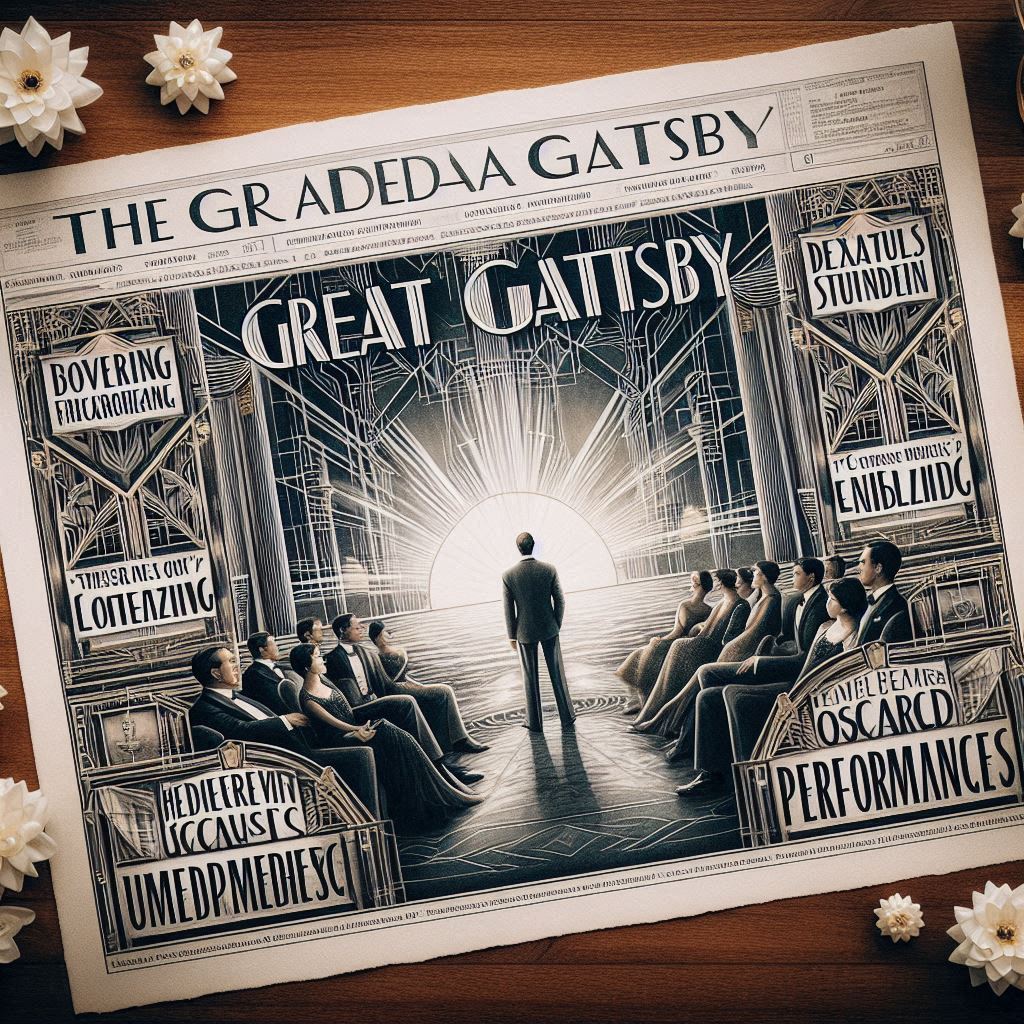Introduction
F. Scott Fitzgerald’s “The Great Gatsby” is a cornerstone of American literature, a novel that has captivated readers for nearly a century. With its intricate characters and evocative depiction of the Jazz Age, the book offers a timeless exploration of wealth, love, and the American Dream. Let’s dive into a comprehensive review of this classic, understanding its layers and its enduring appeal.
Historical Context
Set in the roaring 1920s, “The Great Gatsby” transports readers to an era of economic prosperity and cultural upheaval. The novel is steeped in the vibrancy and excesses of the Jazz Age, a period characterized by jazz music, flapper culture, and Prohibition. F. Scott Fitzgerald, a leading figure of this era, drew heavily from his own experiences and the world around him to craft this iconic tale.
Plot Summary
At its core, “The Great Gatsby” is a story of ambition, romance, and tragedy. The novel follows Nick Carraway, a young man from Minnesota who moves to New York in the summer of 1922. He becomes entangled in the life of his mysterious and wealthy neighbor, Jay Gatsby, who is known for throwing lavish parties. Gatsby’s undying love for Daisy Buchanan, Nick’s cousin, sets the stage for a tale of longing and heartbreak.
Themes and Motifs
The American Dream
One of the central themes of “The Great Gatsby” is the American Dream. Gatsby’s rise from poverty to immense wealth epitomizes this ideal, yet the novel questions its attainability and worth.
Wealth and Social Class
The novel explores the stark differences between the old money of East Egg and the new money of West Egg, highlighting the class tensions and the superficiality of the upper class.
Love and Relationships
Gatsby’s obsession with Daisy, his idealized vision of her, and the complex relationships between characters underscore the novel’s exploration of love and desire.
Illusion vs. Reality
Fitzgerald delves into the illusions that characters create about themselves and others, revealing the often harsh reality behind their facades.
Character Analysis
Jay Gatsby
A self-made millionaire, Gatsby is a complex character whose life is shrouded in mystery. His relentless pursuit of wealth and status is driven by his love for Daisy and his desire to reclaim the past.
Nick Carraway
As the novel’s narrator, Nick offers a balanced perspective on the events and characters, often acting as a moral compass in a world of decadence and deception.
Daisy Buchanan
Daisy is the object of Gatsby’s affection, a symbol of beauty and unattainable perfection. Her charm masks a superficial and careless nature.
Tom Buchanan
Tom, Daisy’s husband, represents the arrogance and entitlement of the old money class. His actions and attitudes are often in stark contrast to Gatsby’s.
Jordan Baker
A professional golfer and Daisy’s friend, Jordan is independent and modern but also embodies the dishonesty and cynicism of the era.
Literary Style
Fitzgerald’s writing is celebrated for its lyrical quality and vivid imagery. The novel’s symbolism, from the green light at the end of Daisy’s dock to the eyes of Dr. T.J. Eckleburg, adds depth to the narrative, inviting readers to uncover deeper meanings.
Critical Reception Over Time
When first published in 1925, “The Great Gatsby” received mixed reviews and sold poorly. However, the novel experienced a resurgence in popularity during World War II and has since become a staple of American high school curricula and literary analysis.
Adaptations
Film Adaptations
“The Great Gatsby” has been adapted into several films, with notable versions in 1974, starring Robert Redford, and 2013, featuring Leonardo DiCaprio. Each adaptation offers a unique take on Fitzgerald’s work, bringing the characters and setting to life on screen.
Stage Adaptations
The novel has also inspired numerous stage adaptations, capturing the essence of Gatsby’s world in live performances.
Cultural Impact
“The Great Gatsby” has left an indelible mark on literature and popular culture. Its themes and characters continue to resonate, influencing countless works and becoming a touchstone for discussions on the American Dream and social dynamics.
Modern Perspectives
Contemporary Reviews
Modern readers and critics often praise the novel’s rich symbolism and exploration of timeless themes. Its relevance in today’s society, particularly in discussions about wealth disparity and the pursuit of happiness, underscores its enduring significance.
Personal Reflections
“The Great Gatsby” resonates with readers for its portrayal of human flaws and aspirations. Its characters, while flawed, offer a mirror to our own desires and the lengths we go to achieve our dreams. The novel’s melancholic tone and beautiful prose leave a lasting impression, inviting readers to reflect on their own lives and values.
Conclusion
“The Great Gatsby” remains a powerful exploration of the American Dream, love, and the complexities of human nature. Its lasting impact on literature and culture is a testament to Fitzgerald’s masterful storytelling and deep understanding of the human condition.
